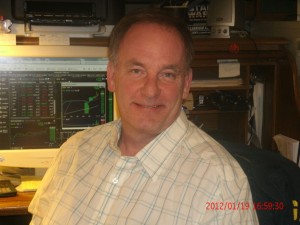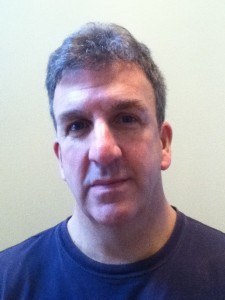
Mark Sadowski was interested in learning the basics of trading. Scott Reed, already an experienced investor, wanted an opportunity to share his skills and interests with his college-age son. Both have been declared winners in UM-Dearborn’s Investment Challenge Quarter Four (Q4) 2011 competition.
The yearlong competition, held in partnership with Crain’s Detroit Business, invites participants to test their investment knowledge in a simulated real-time online stock trading game, using $1 million in mock money. Total prizes of $2,500 are awarded each quarter to the portfolio or portfolios that achieve the highest total and/or risk-adjusted return. The competition is free and open to the public.
The competition for Q4 drew a diverse group of participants, including students, community members and business people with a wide range of investment skills – from beginners to the more experienced.

Sadowski, the winner of the total return category, is a UM-Dearborn graduate (‘97 B.B.A. and B.A.) who spent many years in the trucking industry before becoming disabled several years ago by a hereditary heart condition. Sadowski learned about the competition and said he was hooked. He estimates that he spent at least five hours a day researching stocks, reading books and making trades from his home in St. Clair Shores, Mich. His nearly 1,000 trades generated an impressive quarterly rate of return of 128.56 percent.
“This game has given me confidence,” said Sadowski, who plans to invest his winnings in real stocks. “It is a very hands-on learning experience. In time, you learn and you can supplement your income. This has changed my life.”

Scott Reed, a partner with the consulting firm CRC Associates, had the portfolio with the highest risk-adjusted excess rate of return, referred to as the Sharpe Ratio. Reed, who has an MBA from Stanford, is a longtime investor who learned some of his skills from the Sharpe Ratio creator, William Sharpe, one of his professors.
Reed and his son, Zack, have both been involved in the competition. Reed said it has been a great way to stay in contact with his son, while also helping hone his own investing skills.
Reed made eight strategic trades and had the highest risk-adjusted excess return of 3.78 percent.
“My son and I also trade together in real life, so we used this as a great opportunity to learn about new stocks,” said Reed, a former automotive industry executive who specializes in advising companies that are facing changes. “A couple of the stocks I explored for the competition are getting worked into my real-life portfolio. This has been a great opportunity for both of us, and a great bonding activity as well.”
The competition was greatly influenced by a variety of global economic and political factors that created “an exciting ride,” said Hei-Wai Lee, professor of finance and director of the M.S. in finance program.
“Our Investment Challenge participants really are everywhere in terms of trading patterns and investment experiences,” Lee said. “This reflects the reality of the investment world. There is no one strategy that always wins because market conditions keep changing.”
The Q1 2012 competition is already heating up, and both Sadowski and Reed are again part of the action. The best advice for contestants, said Lee, is to stay on top of the daily news about the prolonged sovereign debt crisis in the European region, the continued political fights during the U.S. presidential election, the tension between U.S. and Iran in the Middle East and the possible economic slowdown in China.
“Since the turn of the year, the economic and investor sentiments have generally been more positive in the U.S., but we still have a long way to go and so much can change,” Lee said. “How the market will be impacted by the ongoing global economic and political factors is anyone’s guess. Stock prices are also driven by the current cycle of earnings announcements of major corporations.”
The Challenge and related efforts are made possible by the College’s Betty F. Elliott Initiative for Academic Excellence, a unique multiyear and multidisciplinary program that focuses each year on one topic critical to the growth of our region and state. Chaired by Lee, the focus of the 2011-2012 Elliott Initiative is financial literacy. You can read more about the Elliott Initiative.
For more information about the Investment Challenge.





